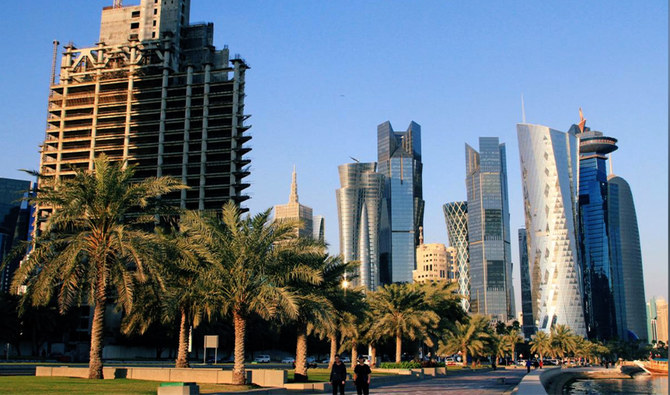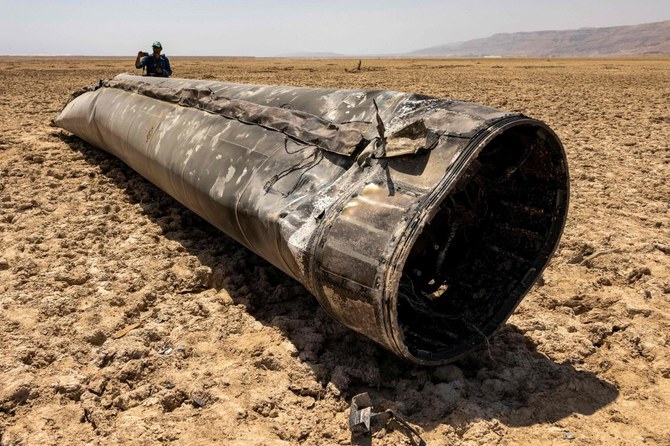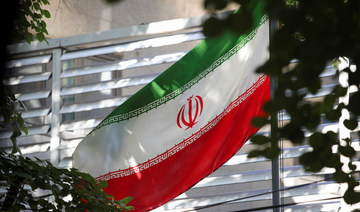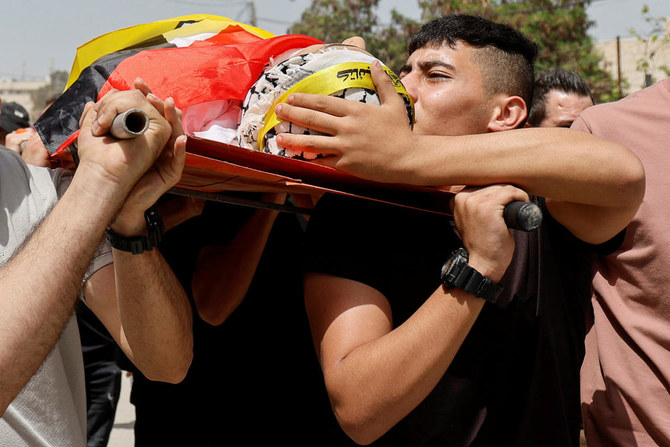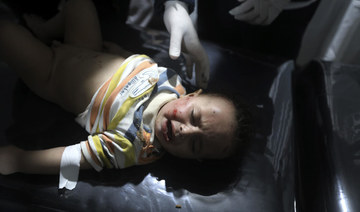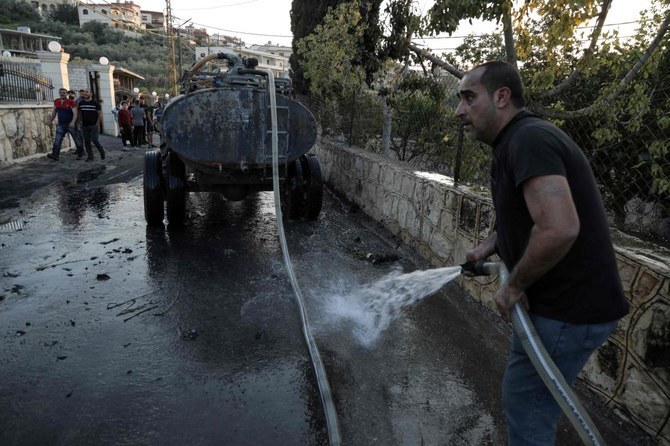CHICAGO: A “wrongful death” lawsuit was filed Wednesday (June 10) against Qatar’s Royal family by relatives of 10 Americans who were either killed or seriously injured during terrorist attacks in Israel and the Israeli Occupied West Bank.
Representing 51 plaintiffs and 10 victims, the lawsuit alleges Qatar finances Hamas and Palestinian Islamic Jihad which are both designated as “terrorist organizations” by the US government.
According to the lawsuit, Qatar sought to evade US sanctions by channeling the money through three entities, the Qatar Charity, which is a member of the US Sanctioned “Union of Good” which is a US “Specifically Designated Terrorist Organization” because of its association with Hamas, and two Middle East banks Qatar’s Royal family controls, Masraf Al Rayan and Qatar National. The chairman of Qatar Charity’s board is Hamad bin Nasser al-Thani, a member of the Qatari Royal Family.
“Like any enterprise, terrorist organizations need money to operate. But unlike legitimate organizations, terrorist organizations like Hamas rely on sympathetic nation states and financial institutions who employ creative fundraising strategies to disguise their operations and evade anti-terrorism laws. Often terrorist financing is disguised as charitable contributions,” the lawsuit asserts.
“It has long been the official policy of the government of Qatar to provide financial support to the Hamas terrorist organization. It is thus no surprise that Masraf Al Rayan bank, Qatar Charity, and Qatar National Bank, which are dominated by the Qatari government and royal family, have joined in that effort.”
Qatar, which hosts a major American and European Air Force Base near Doha, is one of the largest financial supporters of Hamas which is based in the Gaza Strip giving the organization more than $50 million over the years, the lawsuit states.
“In 2008, Palestinian officials claimed that Qatar provided Hamas with millions of dollars a month that was nominally intended for the people of Gaza,” the lawsuit states.
In March 2014, the US Department of the Treasury Under Secretary David Cohen singled out Qatar as an especially “permissive jurisdiction” for terrorist financing noting Qatar “has for many years openly financed Hamas, a group that continues to undermine regional stability.”
Qatari oversight is so lax, Cohen noted, that “several major Qatar-based fundraisers act as local representatives for larger terrorist fundraising networks that are based in Kuwait.”
The lawsuit is filed on behalf of 51 individuals and parents, siblings and relatives of 10 individuals who were either killed or seriously injured as a result of violence allegedly by Hamas and Palestinian Islamic Jihad and funded through Qatar.
The victims named in the lawsuit were all US Citizens living in Israel with dual Israeli citizenship, and include:
• Taylor Force who was allegedly murdered by a Hamas operative on March 8, 2016. a native of Lubbock, Texas who graduated from the New Mexico Military Institute (a secondary school) and then West Point in 2009 and served tours of duty in both Afghanistan and Iraq.
• The 13-year-old daughter of Rina Ariel, identified only as “H.Y.A.,” was murdered in her sleep allegedly by a Hamas terrorist on June 30, 2016.
• The minor son of Abraham Ron Fraenkel and Rachel Devora Sprecher Fraenkel, identified only as “Y.N.F., was allegedly kidnapped and murdered by Hamas terrorists.
• Yehudah Glick was severely wounded in a Palestinian Islamic Jihad terror attack on Oct. 29, 2014 and. Glick is currently a member of the Israeli Knesset and has renounced his US citizenship.
• Richard Lakin was killed in a Hamas attack on Oct. 13, 2015.
• The minor daughter of Shmuel Elimelech Braun and Chana Braun, identified only as “C.Z.B.,” was killed on Oct. 22, 2014 in an alleged Hamas terrorist attack.
• Menachem Mendel Rivkin was seriously injured when he was allegedly stabbed by a Hamas terrorist on Jan. 27, 2016.
• Plaintiffs Yoav Golan and Rotem Shoshana Golan were injured on Dec. 14, 2016 when an alleged Hamas terrorist deliberately drove a car into a crowd of people waiting at a bus station.
• Plaintiff Raphael (“Rafi”) Lisker was stabbed in the neck on Dec. 23, 2106 allegedly by a Hamas terrorist while walking home from Sabbath services with his wife Shoshana.
• Noam Michael Shamba was injured on Dec. 14, 2015 in a terrorist attack allegedly perpetrated by a Hamas operative.
On March 23, 2018, President Trump signed the Taylor Force Act blocking American financial assistance to the Palestinian Authority (PA) asserting that the PA was paying stipends to individuals who commit acts of terrorism. Palestinians argue the monies are actually “welfare payments” made to support the surviving families of the suspects whose homes were destroyed by Israel’s government’s policy of “collective punishment.”
The lawsuit alleges funds provided by Hamas through Masraf Al Rayan bank are tied to the attacks. It notes that Masraf Al Rayan bank is under investigation in the United Kingdom under provision of “financial services to Qatar Charity in knowing support of that organization’s financial support of Hamas and PIJ.”
Qatar Charity solicited donations in Qatar and around the world and then transferred those funds to its account at Masraf Al Rayan bank in Doha, Qatar, the lawsuit asserts.
The monies deposited at Masraf Al Rayan bank were then transferred in US dollars through a correspondent bank in New York and then transferred to Qatar Charity’s accounts at either the Bank of Palestine, or to the Islamic Bank in Ramallah.
Finally, Qatar Charity’s local branches would distribute the funds in U.S. dollars from those local accounts to Hamas, PIJ, and their affiliates to finance acts of terrorism in Israel, the lawsuit claims.
Qatar's tenuous ties to America
Despite the allegations of supporting terrorism, the United States, Great Britain, and other Gulf War coalition nations maintain a coalition military base southwest of Doha, Qatar called Al Udeid Air Base (Abu Nakhlah Airport).
To counter the criticism of Qata’s support of terrorist organizations, the Qatari Royal Family through the Qatar Foundation has invested more than $1.4 billion in colleges and universities, mostly involved in journalism, between 2012 to 2018.
This is not the first lawsuit Qatar faces. Last year in July, Tampa Attorney Rebecca Castaneda filed a Federal lawsuit against Sheikh Khaled Al-Thani, the brother of Qatar’s Emir Tamim bin Hamad Al-Thani, alleging Sheikh Khaled threatened two American contractors for not killing the Sheikh’s enemies.
Castaneda said the original lawsuit is being expanded to include three more Americans plaintiffs who allege “even worse violence” including witnesses who claim Sheikh Khaled murdered an Indian employee who insulted his wife, and made seven solicitations for murder including wanting to kill a leader in the American race car sports industry.
“Sheikh Khaled is a very violent person,” Castaneda said.



